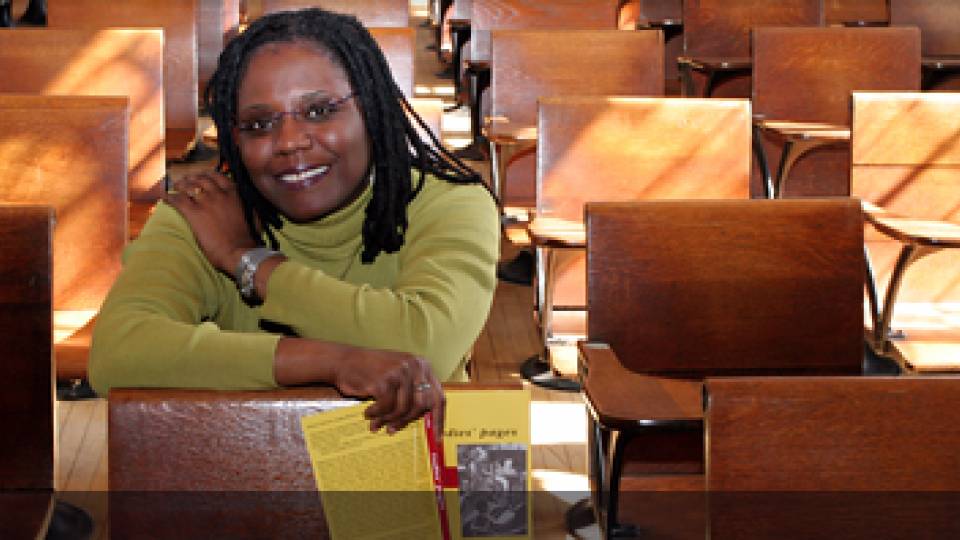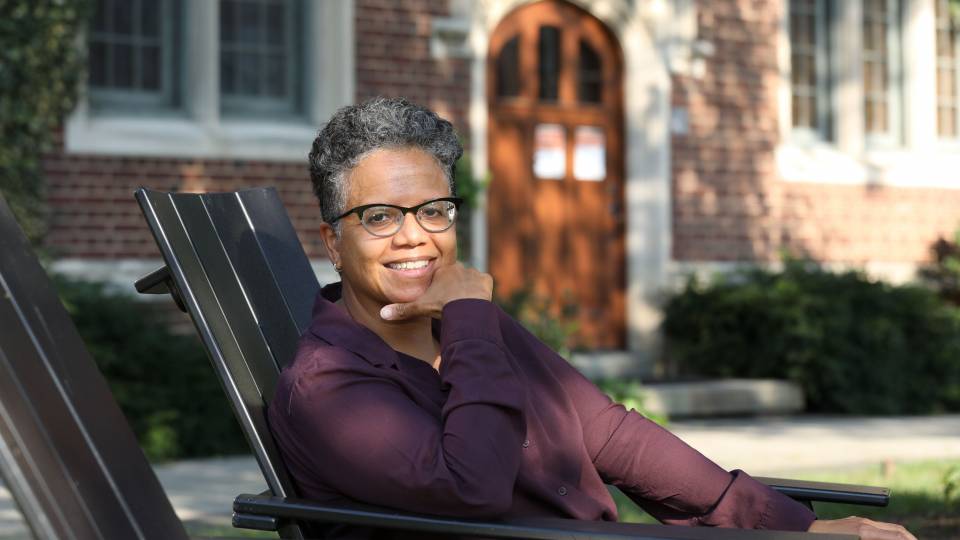Courageous, controversial, intellectually formidable, groundbreaking and beloved were among the many words used to describe Nell Irvin Painter , Princeton's Edwards Professor of History, during a two-day conference held in her honor.
A multidisciplinary array of scholars from around the country converged on the Princeton campus on Friday and Saturday, April 2-3, for "Constructing the Past, Creating the Future: The Legacy of Nell Irvin Painter."
Conference panelists, who included leading scholars, Princeton colleagues and former students, extolled the contributions, achievements and influence of Painter on U.S. historical studies.
"Nell Irvin Painter worked tirelessly throughout her career to include the experiences of African Americans, women and the working class as a vital part of U.S. history," said Valerie Smith, the Woodrow Wilson Professor of Literature and director of Princeton's Program in African American Studies. "Esteemed as a teacher and a mentor, she has also trained a generation of historians who have followed her example of unifying rather than compartmentalizing national narratives."
Painter, director of Princeton's Program in African American Studies from 1997 to 2000, is retiring at the end of the spring semester after 16 years on the Princeton faculty. She is the author of numerous scholarly articles and highly regarded history books, including the "Exodusters: Black Migration to Kansas After Reconstruction," "The Narrative of Hosea Hudson: His Life as a Negro Communist in the South" and "Standing at Armageddon: The United States, 1877-1919."
Leading African American studies scholar Robin D.G. Kelley, professor of anthropology at Columbia University, gave the conference's keynote address, crediting Painter's "The Narrative of Hosea Hudson" as a major influence on his own scholarship.
Kelley called the book the best oral history ever written and said it was the inspiration for his dissertation. Kelley's first personal encounter with Painter was a letter he sent to her seeking contact information for Hudson. Later, he contacted Painter again to request that she review his dissertation on the southern blacks' communist movement.
Even though he received his doctorate from the University of California-Los Angeles, Kelley said, "Nell was as much my mentor as any other graduate student who worked with her."
Kelley said one of the most profound lessons Painter taught him about scholarly work was "writing across the color line." Following Painter's review of his dissertation, Kelley said she convinced him that his work did more than capture the black communist movement in the South. His research also documented important information about the entire southern communist movement. Subsequently, Kelley dropped the term "black" from the original title of his dissertation.
In addition to Kelley, a panel of Painter's former Princeton students, now college professors, attested to Painter's influence in shaping their approach to research and scholarship.
Samuel Roberts, an assistant professor of history at Columbia University, who received his Ph.D in history from Princeton in 2002, said Painter "helped me to look at history in new ways and tie in narratives that might seem disconnected, which are very much related."
"To have a mentor who has shown through her example what scholarship should look like, that it should always be bold, that it should always be courageous, and, yes, even experimental and unapologetically so, this in itself is refreshing and invaluable to have in a mentor," Roberts said.
Patricia Schechter, who received her doctorate from Princeton in 1993 and is now associate professor of history at Portland State University, said Painter's example and support gave her the courage to challenge a common belief about Oregon history. Schechter said many of the state's citizens and local historians boast that Oregon has no history of institutionalized racism, discrimination and segregation. Schechter's six-year research resulted in several discoveries of segregation and racism toward women of color and Ku Klux Klan activities among Portland's elected officials and civic leaders during the early 20th century.
Pulitzer Prize-winning historian David Levering Lewis, the Silver Professor of History at New York University, said much of Painter's contribution to the field of U.S. history was "challenging prevailing historical scholarship" and serving as an inspiration to today's leading, younger scholars.
Through focusing much of her work on the lowly, the obscure and the common masses ignored by most mainstream American history scholars, Lewis said, Painter was able to demonstrate "the influence of the marginalized and discounted" on many aspects of the U.S. historical record.
Contact: Eric Quinones (609) 258-3601






